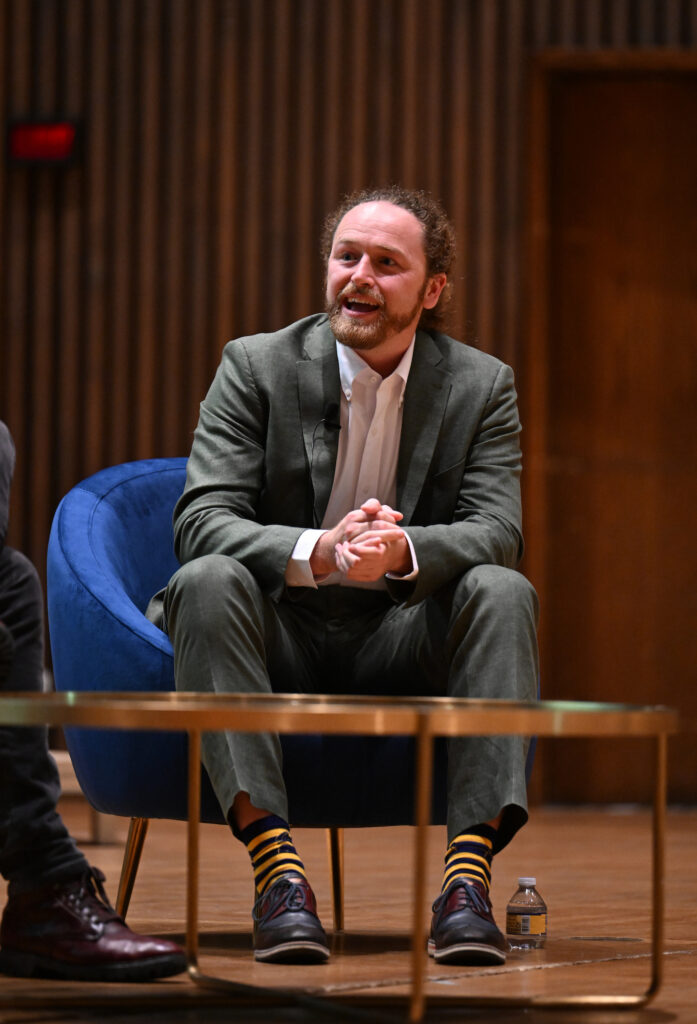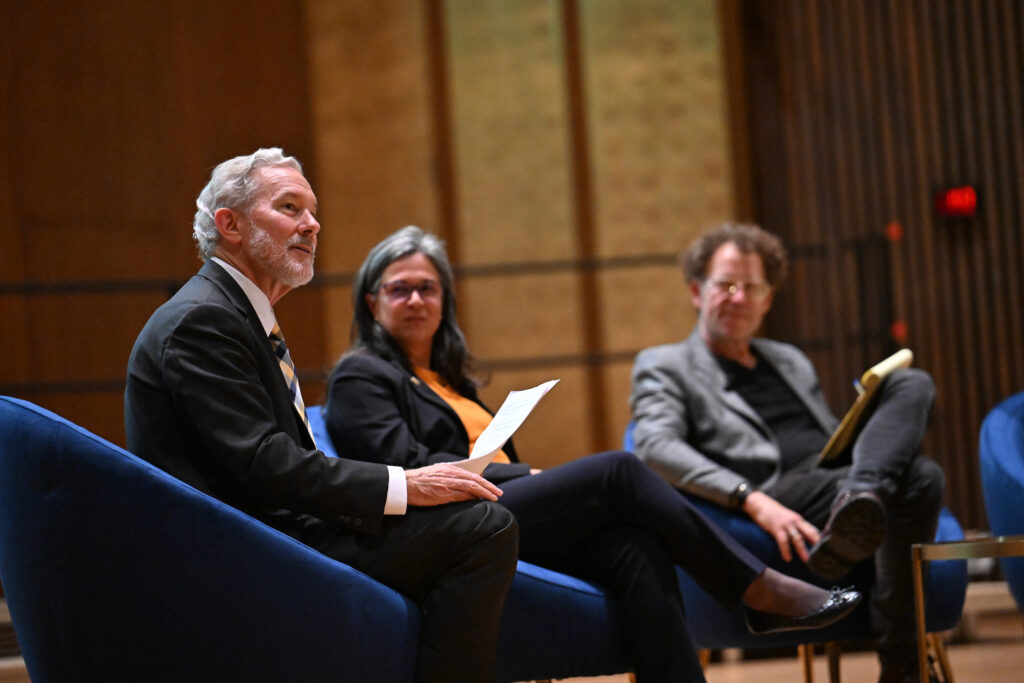Gone are the days of scientists and scholars being walled off from innovators and entrepreneurs, campus leaders said Friday. And society is better as a result.
Chancellor Rich Lyons hosted a wide-ranging panel discussion during Homecoming weekend with a group of prominent faculty and an alum who has benefited from UC Berkeley’s sprawling innovation network. While Berkeley has created a vast ecosystem for students and faculty to build their ideas into companies, Lyons said basic research done at scale for the greater good is what makes the campus excel.
“It’s the fundamentals that distinguish us,” Lyons said.
“We respect one another,” he added. “The scientists respect the humanists and vice versa. … I think that’s part of the culture that allows Berkeley to sustain such a remarkable portfolio.”
Lyons was joined on the panel by Ana Claudia Arias, a professor of electrical engineering and computer sciences; Ken Goldberg, a professor of engineering; and Marco Lobba, an alum and co-founder and CEO of CatenaBio. The group discussed how collaboration on campus has evolved and now encourages the next generation of scholars to grow their ideas.

Keegan Houser/UC Berkeley
Lobba recalled being a Ph.D. student at Berkeley, working in the lab of Nobel laureate Jennifer Doudna and thinking about creating a company at the intersection of chemistry and molecular biology. Doing so as a bench scientist seemed like a “black box,” he said.
He approached Berkeley alumni and others in industry with a pair of questions: “Do you have a pain point, and does my fundamental basic research discovery fix that?”
Enthusiasm followed. There was a demand for the work he was doing that would ultimately address the challenge of delivering targeted protein therapeutics.
That entrepreneurial culture, and Berkeley’s strong network of business-oriented alumni, haven’t always existed. Berkeley’s evolution into a hub for new companies was chronicled in a recently released book, Startup Campus, which lays out how Berkeley’s emergence as an entrepreneurship and startup leader required investment and effort. Lyons on Friday said that the book can serve as a “playbook” for others.
Now in his 30th year at Berkeley, Goldberg said he’d seen that transformation firsthand.
“I have seen this shift — as you said, this seismic shift — that has led to much more of an openness and encouragement, a very different attitude that’s very cooperative,” said Goldberg, co-founder of Ambi Robotics and Jacobi Robotics.
Arias, who creates flexible large-area electronic devices and sensors, also lauded the array of opportunities at Berkeley, including the Bakar Fellows Program, I-Corps and SkyDeck. Combined, the infrastructure and the people make it clear they want you to succeed, she said — both academically and in translating that work.
“I think it’s part of culture,” she said, recounting her early days on campus. “It’s part of Berkeley to really think about how the fundamental research I am doing will affect others, will affect the community and make the community better.
“And I see that so many of my colleagues take that to heart.”

